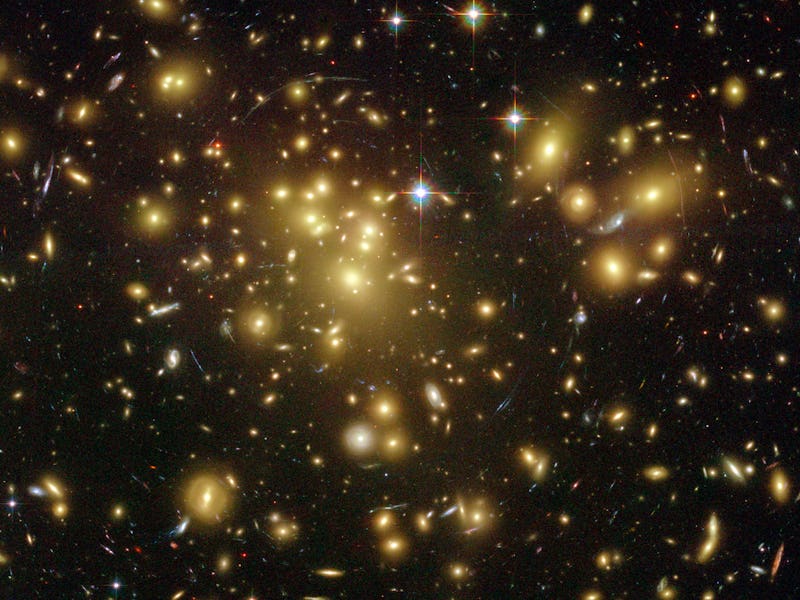Science Says Earth is One of 700 Quintillion Planets in the Universe
It's as though we won back-to-back-to-back lotteries.

This post has been updated.
If you think the chance of finding a planet like Earth, is “one-in-a-million,” you’re way off. Try one in 700 quintillion.
These odds are presented in a new study which estimates over 700 quintillion terrestrial planets in the universe. To really get that in your head, that’s a seven followed by 20 zeros (700,000,000,000,000,000,000). Just in terms of the math, the findings lend more support to the notion Earth is an especially rare place.
The study, available on the arXiv repository and currently submitted for review by The Astrophysical Journal, was conducted by a Swedish astrophysicist working with a computer model he created to simulate the evolution of the universe after the Big Bang. That researcher, Erik Zackrisson, used current research into exoplanets and knowledge about the early universe as part of the model, and ran it to recreate the past 13.8 billion years of history.
The average age and locations of those other planets run in contrast to what many researchers believe — that the sheer number of planets and moons in the universe makes the prospect of finding no other habitable worlds highly unlikely. After all, 700 quintillion is a big number.
So far, scientists have found about 30 exoplanets in the habitable zones of their host planets — the region where a planet is most likely to develop the characteristics required to grow and evolve life. This is just the tip of the iceberg — to think that one of those rocks can’t evolve the right kinds of atmosphere or temperatures is preposterous.
It's the job of the Leonhard Euler Telescope to look for exoplanets.
Perhaps that’s true. But according to Zackrisson and his findings, most planets and moons in the universe shouldn’t actually look like Earth or behave like this world.
Earth, in other words, in a statistical anomaly — an extreme outlier that really shouldn’t exist.
Nevertheless, these are just the results of a computer model. There is no question that even if the odds of finding another Earth were even lower, scientists would still be on the hunt for another habitable planet. All space research leads to E.T., after all.